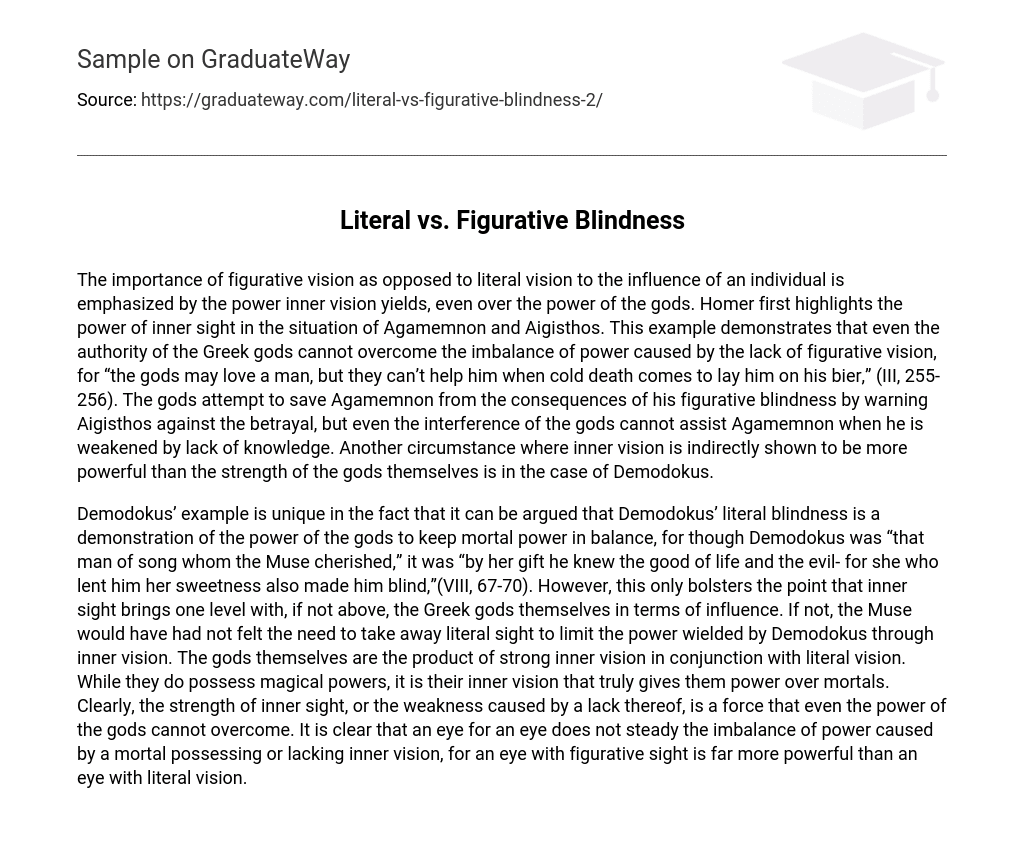The text emphasizes the significance of figurative vision over literal vision in influencing an individual’s power. Inner vision is shown to hold more power than even the gods. Homer illustrates this by highlighting the situation of Agamemnon and Aigisthos, demonstrating that the Greek gods cannot overcome the power imbalance caused by the absence of figurative vision. Despite their love for Agamemnon, the gods are unable to save him from death because he lacks knowledge. The gods attempt to prevent Aigisthos’ betrayal through warning, but they cannot assist Agamemnon when he is weakened by his ignorance. Another instance that indirectly illustrates the superiority of inner vision over the gods’ strength is seen in Demodokus’s case.
Demodokus’ example is unique in that it can be argued that his literal blindness is a demonstration of the gods’ power in maintaining balance among mortals. Even though he was a talented singer favored by the Muse, his blindness was a result of her gift, allowing him to perceive both the good and evil of life. This suggests that inner sight holds as much, if not more, influence than the Greek gods themselves. Otherwise, the Muse would not have needed to take away Demodokus’ literal sight to limit his power. The gods themselves are only powerful due to their strong inner vision combined with their literal sight. While they possess magical abilities, it is their inner sight that truly gives them power over mortals. Clearly, the strength of inner vision or the weakness caused by its absence is a force even the gods cannot overcome. Thus, an eye for an eye does not rectify the power imbalance caused by a mortal possessing or lacking inner vision, as figurative sight holds far more power than literal vision alone.





